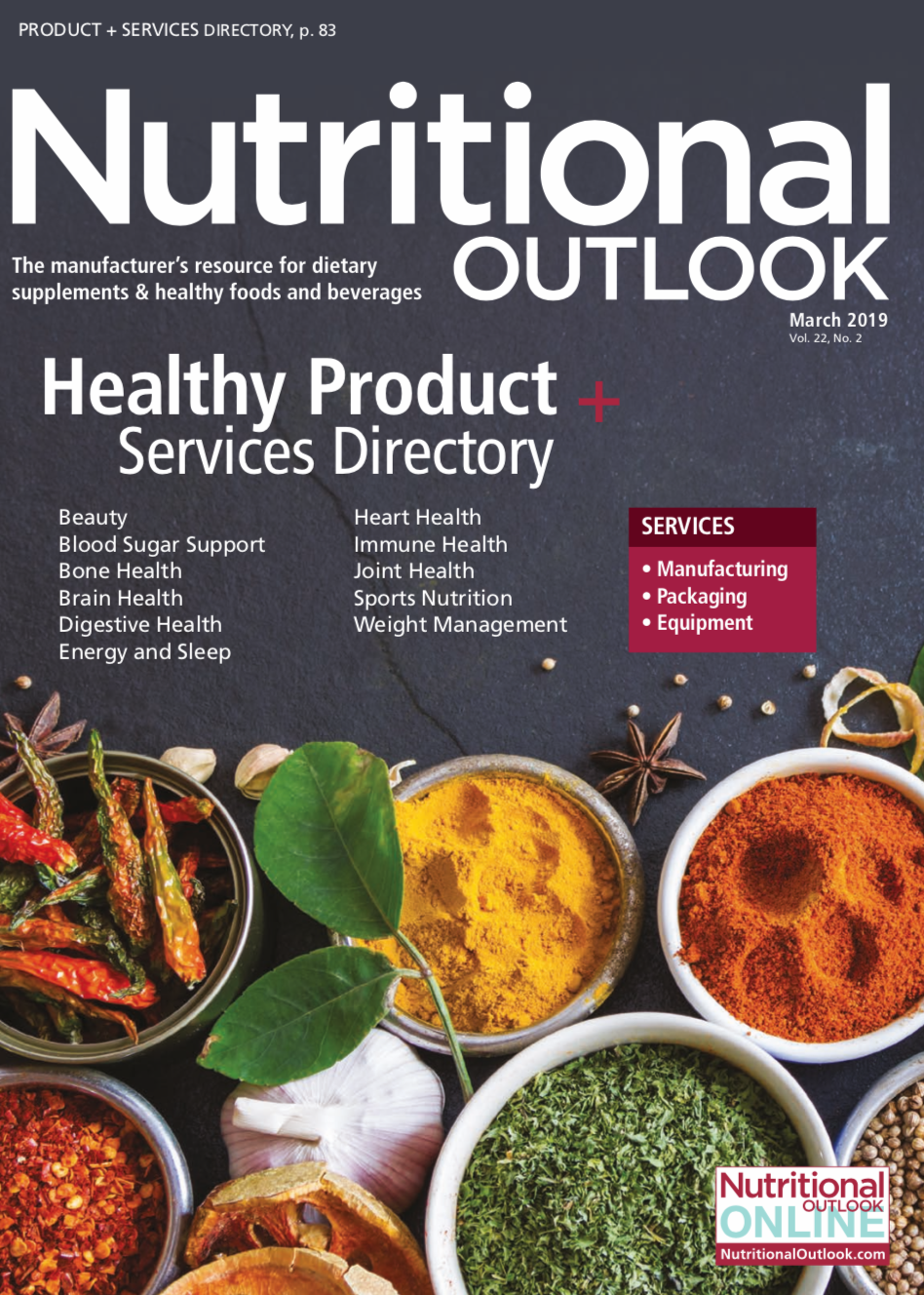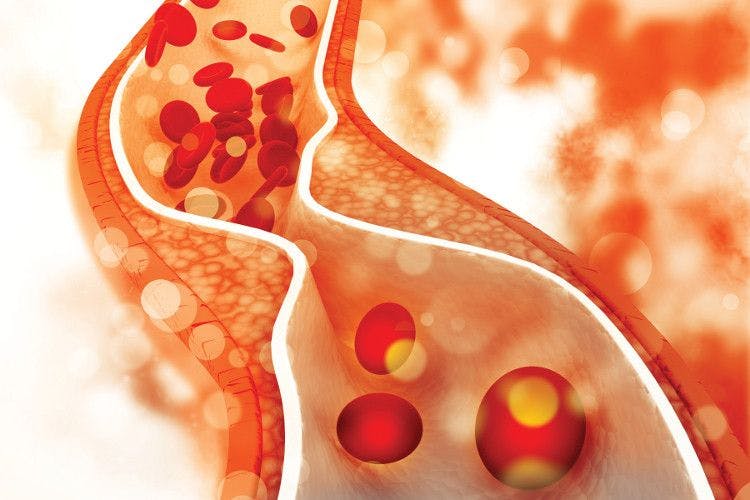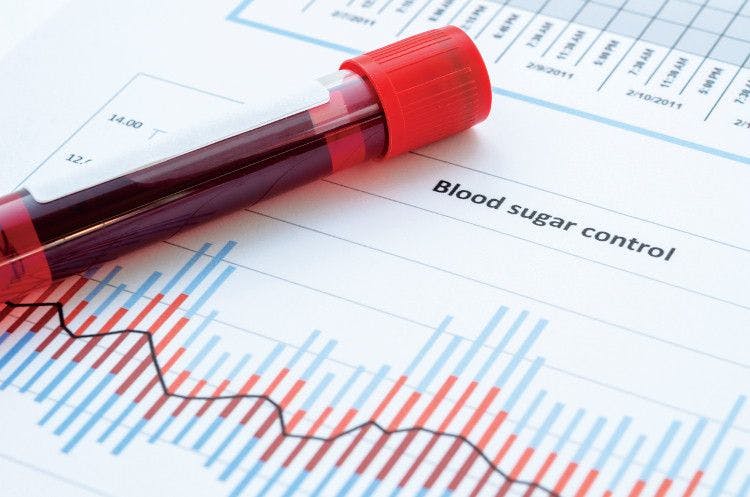Vitamin D and calcium are still popular for bone health, but so are emerging contenders
Three ingredients that outperformed their previous year’s sales were magnesium, vitamin K, and collagen, according to SPINS.
Photo © AdobeStock.com/WavebreakmediaMicro

Bone health is part of the foundation of healthy aging. Understandably, many consumers have turned to dietary supplements as part of their bone health strategy. And they will continue to do so.
A number of bone health ingredients dominate the market today, from those that are well recognized to others for which recognition is somewhat new. For many of these ingredients, there’s an overlap of benefits to bone health and overall health. As knowledge grows around each of them, manufacturers, healthcare practitioners, and consumers will benefit from staying up to state.
The Usual Suspects
To no one’s surprise, vitamin D and calcium continue to reign supreme in the bone health supplements category.
Nutritional Outlook caught up with the Council for Responsible Nutrition (CRN; Washington, DC), and the organization emphasized that research continues to focus on vitamin D supplementation not just for bone health, but for cardiovascular health, immune health, and various other human health factors. If negative outcomes have resulted from any of the latest research, there’s still plenty of positive outcomes to counter them.
Ongoing vitamin D deficiencies in the general population, due to diet or lack of sun exposure, as well as increased popular use of vitamin D testing, are also keeping vitamin D in the mainstream.
As for calcium, there has historically been cause for concern with occasional studies linking calcium supplementation to heart health risks. But in an interview with CRN’s Andrea Wong, vice president of scientific and regulatory affairs, Wong said, “Studies are reinforcing the safety of calcium. There was some noise a few years ago on calcium, but definitely in the last few years there have been large-scale trials with calcium supplementation, and those all showed that supplementation is safe.”
Given the historical sales trends and latest research, it’s safe to assume that vitamin D and calcium supplements won’t be going away anytime soon.
Market Surprises?
A look at sales data from the market research group SPINS reveals that all but three of the top 10 bone health supplement ingredients in the conventional, multioutlet retail channel saw sales declines in the 12 months ending November 4, 2018. Even vitamin D and calcium endured small sales losses. Three ingredients, however, that outperformed their previous year’s sales were magnesium, vitamin K, and collagen.
A longstanding nutrient of interest, magnesium is known to indirectly support bone health by activating vitamin D in the body. In Europe, magnesium is supported by a number of available health claims unrelated to bone health. It’s possible that magnesium’s growing reputation as an important general nutrient, and ongoing concerns about magnesium deficiencies, are contributing to magnesium’s recent success in bone health supplement sales.
Vitamin K lends much of its success to growing interest in vitamin K2, which is increasingly regarded as an important variant of vitamin K. Nutritional Outlook recently produced a refresher on vitamin K2 and bone health, but a lot of the latest studies are focusing on vitamin K2 for other health concerns, including eye health, heart health, skin health, and body weight.
In Japan, the fermented soy product natto is rich in vitamin K2 and popularly consumed. Western diets, however, don’t have any notable food sources of vitamin K2. They must instead rely on the conversion of vitamin K1, from foods such as leafy greens, into vitamin K2. The extra challenge makes vitamin K2 supplements worth consideration.
For what it’s worth, researchers recently discovered vitamin K2 in honey. Whether it’s of value to humans remains to be seen.
Increasingly Plant-Based
The health products industry is increasingly plant-based, and most markets based on animal ingredients are adapting. Even vitamin D is in the midst of its own plant-based transformation.
Vitamin D products are sold as either vitamin D2 (ergocalciferol) or vitamin D3 (cholecalciferol), with the former often sourced from mushrooms and yeast and the latter traditionally sourced from sheep’s wool. Regardless of which vitamin D is more bioavailable-which is an ongoing subject of scientific interest-there’s growing demand for animal-free vitamin D. Vitamin D3 from lichen, and maybe even seaweeds, creates even more plant-based competition in the vitamin D marketplace.
Convenient as vitamin D supplements are, home cooking is still a viable way to get vitamin D in the diet. Fish and culinary mushrooms can be good sources, but it’s important to recognize that certain cooking methods can degrade vitamin D more than others, as a new study shows. Consumers and food providers should stay in the know.
Collagen Success
Opposite plant-based ingredients is collagen, an animal-derived protein that’s making gains in dietary supplements. According to SPINS tracking, collagen sales rose a staggering 66% in the mainstream bone health channel last year, but the boost in collagen sales is happening across multiple other channels.
“We see a proliferation of collagen in the marketplace because it’s a component of so many parts of the body, so it could have benefits for other things beyond bone health,” says Andrea Wong. Collagen is finding its way into beauty products and joint health products, to name a few non-bone sectors, and it’s even finding its way into sports nutrition studies.
Once again, a general health halo may be benefiting sales in the bone health market specifically.
Avoiding the One-Size-Fits-All Rule
Best practices in dietary supplements include labeling products for recommended serving sizes and daily values based on industry standards and research. However, it’s important to recognize that consumers will have different needs depending on diet, age, gender, and even environmental factors.
Bone health supplements are not exempt to this unwritten rule. In the case of vitamin D and calcium, these ingredients are essential to human health, but consumer needs vary (especially from supplements). While mandatory labeling is important and rules must be abided, manufacturers can do well by reminding consumers to consult with their healthcare practitioners before just consuming a bone health dietary supplement as the label indicates.

Prinova acquires Aplinova to further increase its footprint in Latin America
April 7th 2025Prinova has recently announced the acquisition of Brazilian ingredients distributor Aplinova, which is a provider of specialty ingredients for a range of market segments that include food, beverage, supplements, and personal care.

























